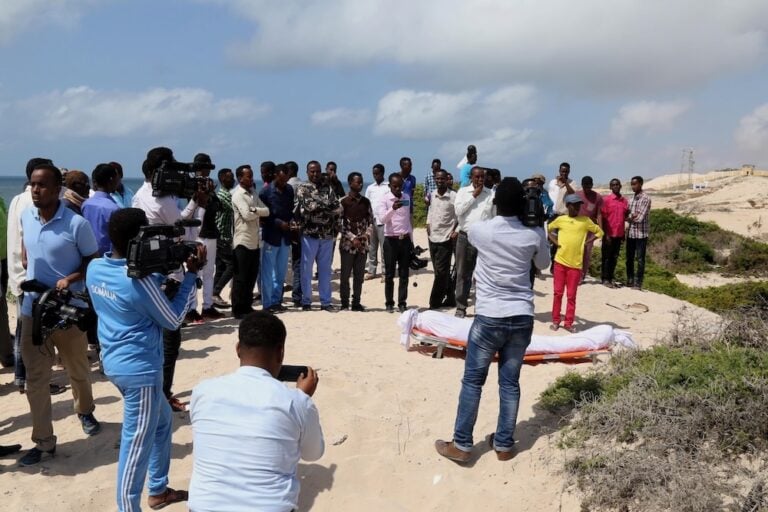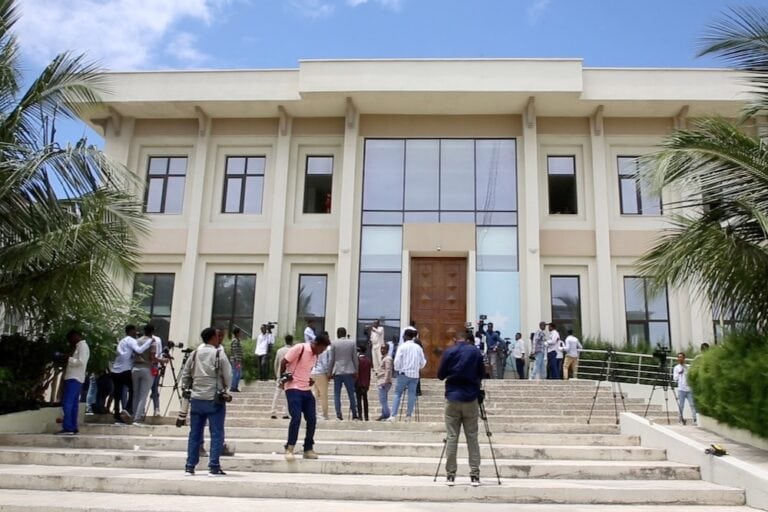The National Union of Somali Journalists expressed its concern over the declining situation for the media in Somalia in a meeting with the president of the UN General Assembly.
UPDATE: Somali group urges UN Human Rights Council to protect human and trade union rights (NUSOJ, 26 September 2012)
(IFEX/NUSOJ) – 10 September 2012 – The National Union of Somali Journalists (NUSOJ) expressed its concern at the declining situation for the media in Somalia in a meeting with the president of the UN General Assembly, Nassir Abdulaziz Al-Nasser, on 7 September.
NUSOJ Secretary General Omar Faruk Osman alerted Al-Nasser of the steady decline for journalists in the work environment and the shrinking space for free expression in Somalia. Nine media workers were murdered in Somalia since Al-Nasser’s visit to Mogadishu in December 2011.
In the last few months, there have been several cases of killings, arrests and threats against journalists and other media personnel. All these media freedom violations are indicative of the difficulties that Somali journalists and media houses are encountering in the course of trying to work without being exposed to threats and risks. This is the case both in Mogadishu and other regions.
“Somali journalists are finding it difficult to conduct their work safely. Nothing has been done to improve the situation in the country, and in fact, we have noticed an increase in deliberate attacks on journalists and media in the past ten months,” said Osman.
Al-Nasser, expressing concern over increased violence against Somali journalists, said “As president of the General Assembly, I reject all forms of attack, unlawful persecution or killing of journalists whether they are working in new or traditional media.” “These crimes against journalists are committed in violation of International law.”
“It is unacceptable that journalists are being murdered every year but the killers often go free,” added the president of the UN General Assembly.
“Freedom of Information, which is a fundamental right inherent in the Universal Declaration of Human Rights, became subject to threat and suppression in conflict zones in particular.”
NUSOJ appealed to the president of the General Assembly to help with the prosecution and conviction of those involved in the killings of journalists; NUSOJ also asked Al-Nasser to vigilantly monitor fatal attacks against journalists and to take action, using relevant mechanisms and instruments available within UN systems.
A global delegation of journalists, led by the President of the International Federation of Journalists (IFJ), Jim Boumelha, carried out an advocacy mission on the safety of journalists to the UN Headquarters in New York. The delegation also met with members of the UN Security Council.
On 31 August, the president of the General Assembly circulated recommendations on safety and protection of journalists to the member states.


